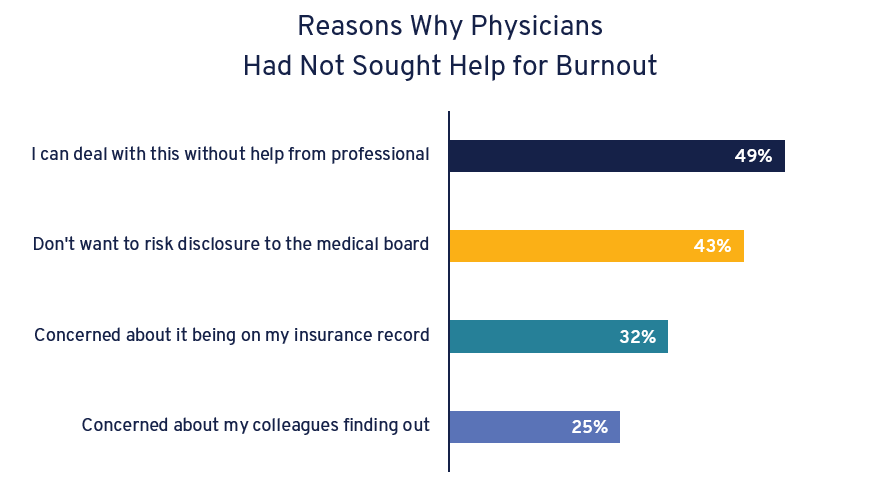2022 Medscape Reports: Physician Burnout, Depression, and Suicide
One in ten physicians reported that they have thought about or attempted suicide according to the 2022 Medscape Survey. General surgeons were among the specialist groups with higher rates of suicidal thoughts. According to research, physicians have suicidal thoughts at about twice the rate of the general population. Physician burnout is a major cause of suicidal ideation. As a result, addressing physician suicide requires a deeper understanding of physician burnout.
Physician Burnout
“Burnout can be a vulnerability factor that leads to depression, and depression can make an individual more likely to suffer burnout.”
– Dr. Peter Yellowlees, MBBS, MD
The Top 5 Factors that Contribute to Burnout include:
- Too many bureaucratic tasks
- Lack of respect from administration/employers
- Too many hours at work
- Lack of control/autonomy
- Insufficient compensation/salary
Dr. Yellowlees, chief wellness officer for UC Davis Health and professor of psychiatry at the University of California, also stated that “close and intimate relationships are the single most protective factor for our mental health.” Unfortunately, burnout negatively impacts relationships. This was true in the 2022 Medscape survey, in which 68% of physicians reported that burnout had a negative effect on their relationships.
In order to reduce burnout and depression, the AMA recommends several ways for healthcare organizations to help physicians, such as support groups and team-based care to rebalance workloads.
Does your workplace offer resources to reduce burnout and depression? 58% of physicians reported that either their workplace did not offer a program, or that they did not know if a program was offered. Knowing what resources are available is imperative before and after taking a job.
When asked how to best reduce burnout, physicians prioritized the following:
- More manageable work schedule
- Increased compensation
- Greater respect from administrators/employers, colleagues, or staff
This study also identified reasons why physicians had not sought help for burnout.

Physician Suicide
“Many physicians don’t seek mental health care due to fear of negative consequences in the workplace, including retribution, exclusion, loss of license, or even their job.”
– Gary Price, MD, President of The Physicians Foundation
Sadly, this was the case for Dr. Lorna Breen, who died of suicide in 2020 during the COVID-19 pandemic. Dr. Breen feared losing her medical license if she talked to a professional. Congress passed the Dr. Lorna Breen Health Care Provider Protection Act to prevent physician suicide.
The US Department of Health & Human Services must award grants to facilitate mental health programs for providers as part of the legislation. In addition, they must also establish policy recommendations and conduct campaigns to:
- Improve providers’ mental and behavioral health
- Encourage providers to seek mental health support and assistance
- Remove barriers to such treatment
- Identify best practices to prevent suicide and promote resiliency
At SCC, we advocate, educate, and empower individual physicians. Proactive review of your cultural fit and salary can prevent burnout before it starts. We offer coaching services and compensation analysis to alleviate burnout. Knowledge is power. Know your value. Schedule a free consultation today.
Resources for Physicians Having Suicidal Thoughts
- Physician Support Line
- 888.409.0141
- physiciansupportline.com
National Suicide Prevention Lifeline
- 800.272.8255
- Text: 741741
- suicidepreventionlifeline.org
